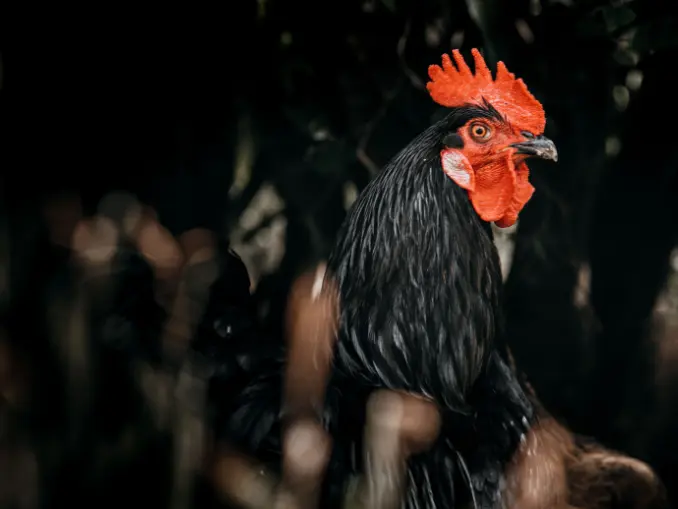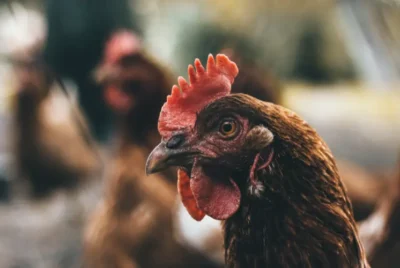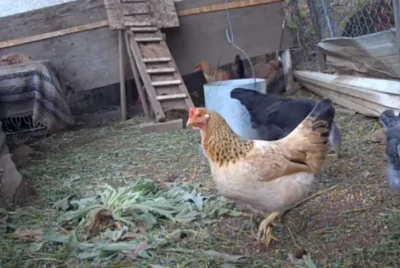Breed Profile: Black Jersey Giant Chicken
Having Black Jersey Giant chickens in my backyard has been quite the adventure. They’re huge, friendly, and different from your typical backyard chicken. They need more room, special food, and a bit of patience, especially when waiting for those first eggs.
I’ll share what I’ve learned from raising these big birds in this guide. Whether you’re drawn to them for their size, personality, or eggs, I hope my experiences help you decide if Black Jersey Giants fit your flock.
Physical Features of Black Jersey Giant Chickens
Black Jersey Giants are known for their impressive size and beautiful plumage. They are one of the largest chicken breeds, with roosters typically weighing 13 to 15 pounds and hens around 10 to 12 pounds.
Moreover, they are striking, featuring glossy black feathers that may have a greenish sheen in sunlight. Their comb, wattles, and earlobes are bright red, creating a vivid contrast against their dark feathers.
The breed has a broad body, strong legs, and large feet, all contributing to their commanding presence. Additionally, their eyes are usually dark brown, adding to their striking appearance.
Temperament And Personality
Black Jersey Giant chickens are calm and friendly, standing out as gentle giants in poultry breeds. They engage warmly with families and integrate well into backyard flocks, often initiating interactions with their human caretakers and showing curiosity toward newcomers.
Despite their impressive size, they display no aggression, making them compatible companions for other chickens in a mixed flock.
Additionally, they can stay in a coop without getting upset. Still, they also love to forage outside if they have a space to roam. So, if you’re looking for a big chicken that’s easy to get along with, the Black Jersey is a great choice.
Egg Production
Black Jersey Giant chickens, while primarily raised for their size and meat, do lay eggs, but their egg production is moderate compared to specialized egg-laying breeds.
On average, a Black Jersey Giant hen can produce about 150 to 200 large brown eggs per year. They start laying eggs a bit later than other breeds, often around 6 to 8 months of age, due to their larger size and the energy it takes for them to grow.
While they might not be the top choice if you’re looking for a breed that lays an egg nearly every day, their gentle nature and the quality of the eggs they produce can make them a worthwhile addition to a backyard flock.
Black Jersey Giant Chicken Care and Raising Tips
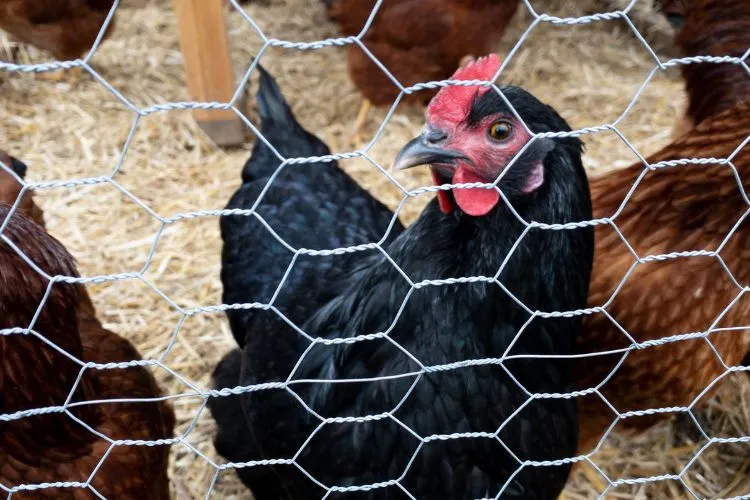
Choose the Right Coop Size
Black Jersey Giants are one of the largest chicken breeds, so they require more space than smaller breeds. I recommend providing at least 4 square feet per chicken inside and 8-10 square feet per chicken in the outdoor run. Spacious conditions help prevent stress and promote healthy growth.
Provide Adequate Nutrition
Due to their large size, Black Jersey Giants need a protein-rich diet, especially during their growth. So, I advise offering a high-quality feed formulated for large breeds. As adults, they can switch to a standard layer feed, supplemented with occasional treats like vegetables, fruits, and grains for variety.
Implement a Regular Health Check Routine
Regular health checks are vital. Pay attention to their feet and legs because their weight can lead to issues. Also, monitor for signs of respiratory problems common in larger chicken breeds. Keep an eye on their feather condition and watch for external parasites.
Ensure Proper Ventilation
Good ventilation in the coop is crucial to prevent respiratory issues. However, ensure it’s draft-free, especially in colder months, to keep your giants comfortable and healthy.
Allow for Adequate Foraging Space
Black Jersey Giants enjoy foraging and require space to do so. If free-ranging is not an option, providing a large, secure outdoor run with access to grass, insects, and other natural foods can satisfy their foraging needs and keep them happy.
Protect Against Predators
Their large size might deter some predators, but not all. Secure the coop and run with predator-proof fencing and bury it a foot deep to prevent digging predators. Close coop doors at night to keep your chickens safe.
Plan for Winter
In colder climates, their large size and feathering help them tolerate cold well, but they still need a dry, draft-free coop. Ensure the water doesn’t freeze, and provide extra bedding for warmth.
Be Patient with Egg-Laying
Remember, Black Jersey Giants start laying eggs later than other breeds, often around 6 to 8 months old. Be patient and ensure they have a comfortable, quiet laying area.
My Journey with Black Jersey Giant Chickens
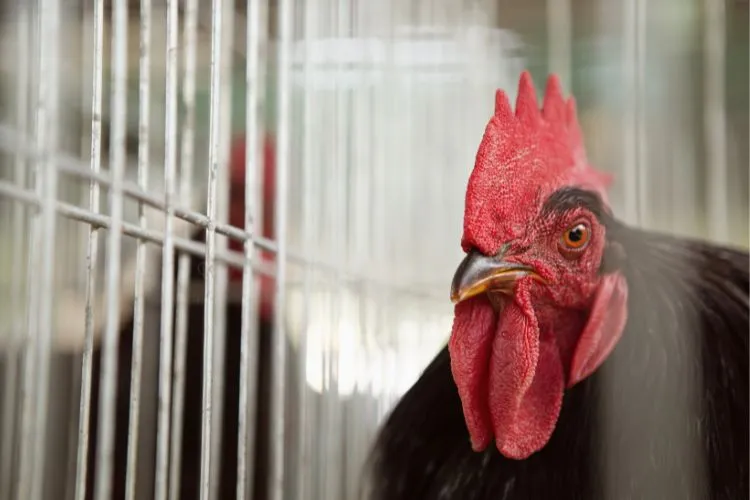
Together with Black Jersey Giant chickens has been a unique and rewarding experience. When I first got them, I was struck by their size – they’re truly gentle giants. Setting up a spacious coop was my first step, ensuring they had plenty of room to move and roost comfortably. I quickly learned they need a good diet to match their size, so I focused on giving them plenty of protein.
Watching them forage in the yard is one of my favorite pastimes. They’re surprisingly graceful for their size and have a curious nature that’s entertaining to observe. They’re not just big birds; they’ve got big personalities to match.
Egg laying took longer than expected, but the wait was worth it. The large brown eggs are a morning treat, and knowing they come from my own backyard makes them even better.
Taking care of them through the seasons, especially in winter, taught me much about chicken care. They’re hardy birds, but I still make sure their coop is snug, and the water isn’t frozen.
Through it all, what’s amazed me most is their temperament. They’re so calm and friendly, often greeting me when I enter the yard. It’s like having feathered friends; I wouldn’t trade the experience for anything.
My journey with these magnificent birds has been amazing, blending the joys of chicken raising with the unique character of Black Jersey Giants.

